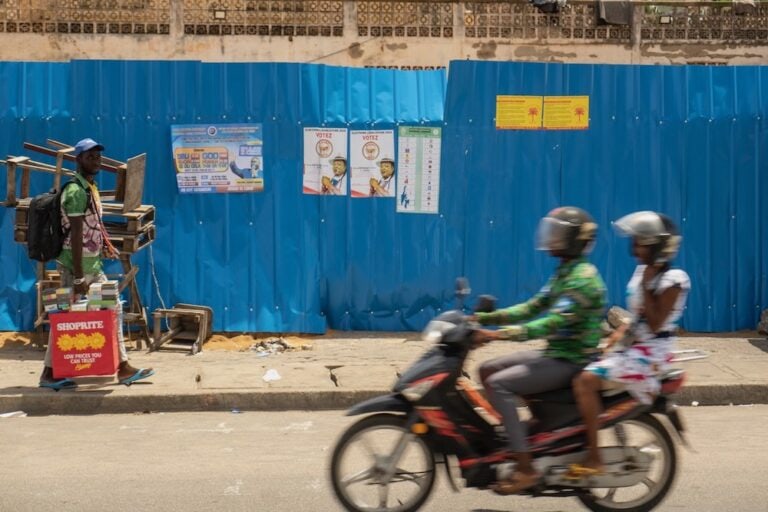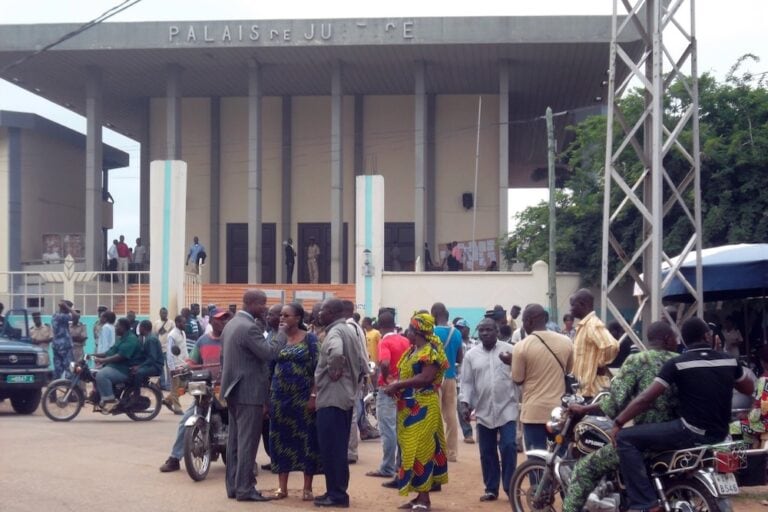In a telephone interview with CPJ, Minister of Security Colonel Dokissime Gnama Latta downplayed the assault as a "Little scratch."
(CPJ/IFEX) – New York, March 7, 2012 – The Committee to Protect Journalists calls on authorities in Togo to investigate a report that police assaulted a photojournalist on Friday after he took photos of officers seizing a motorcycle during a protest, according to media reports and local journalists.
Koffi Djidonou Frédéric Attipou, a photojournalist with the weekly Le Canard Indépendant and the biweekly magazine Sika, told CPJ he was covering a protest over government human rights violations when he turned his camera to police confiscating a demonstrator’s motorcycle nearby. Togolese police, facing numerous allegations of heavy-handed and abusive tactics, have had a number of recent confrontations with journalists covering their activities, according to news accounts and CPJ research.
Attipou said he suffered an eye injury when officers kicked him and struck him with batons. Two local press freedom groups, SOS Journaliste en Danger and Journalistes pour les Droits de l’Homme (JDHO), condemned the attack and called for an investigation.
In a telephone interview with CPJ, Minister of Security Colonel Dokissime Gnama Latta downplayed the assault as a “Little scratch.” Latta acknowledged meeting with Attipou afterward, and he confirmed media reports that police gave the journalist about 50,000 CFA francs (US$98) to pay for medical treatment.
“Togolese police and security forces have a record of abusing journalists,” said CPJ Africa Advocacy Coordinator Mohamed Keita. “Koffi Djidonou Frédéric Attipou’s report warrants a serious probe and his assailants should be brought to justice to send a clear signal that authorities will not tolerate such behavior.”
Last year, the United Nations Human Rights Committee urged Togolese authorities to “thoroughly investigate” any “infringement on the freedom of thought and expression of journalists and human rights defenders or any attack on their integrity.”
“Those who commit such acts must be prosecuted and subject to criminal penalties,” the human rights committee said.


